For nearly 18 years, University of Macau (UM) alumnus Daniel Fung oversaw all matters of protocol in the government of the Macao Special Administrative Region (SAR), for which he coordinated visits from heads of state and government, organised official events, and planned the chief executive’s visits. ‘Protocol officers need to have a broad range of knowledge, and I happen to like learning a little about everything,’ Fung says.
From Computing to Public Administration
Although Fung was always a straight-A student and showed great promise at a young age, he originally planned to find a job as quickly as possible after graduation from high school in order to support his family. However, with the encouragement and support of his high school principal Lei Sui I, Fung changed his mind and decided to enrol in a four-year computer science undergraduate programme at Jinan University in Guangzhou. Upon graduation from college, he went on to learn the Portuguese language in Portugal for one year, before landing a computer technician job in the Macao government in 1987.
But he soon realised that he was not passionate about his job and began to look for an opportunity for change. He did not have to wait long. After China and Portugal signed the Joint Declaration on the Question of Macao in 1987, the government began to train locals like Fung to take up higher positions. ‘I was eager to study different subjects to advance my career in a new area. As part of the localisation drive, the University of East Asia, which was the predecessor of UM, cooperated with the National Institute of Administration of Portugal to launch a bachelor’s degree programme in public administration in 1989.’ Fung says, ‘I applied right away.’
Taught by the President of Portugal
From 1989 to 1991, Fung worked during the day and studied in the evenings. All of his professors were assigned from Portugal, and the programme was taught entirely in Portuguese. In the beginning, the language barrier was quite a challenge, but Fung soon overcame it and completed the programme at the top of his class in 1991. ‘This programme allowed me to dive into different areas of knowledge. It also greatly sharpened my Portuguese language skills, which later came in handy when I became Macao’ s chief of protocol, because I needed to liaise with consular missions of Portuguese-speaking countries,’ says Fung. ‘Moreover, I needed to plan the chief executive’s visits to Portugal, Brazil, and Portuguese-speaking countries in Africa. Speaking the language is a great help when I need to liaise with my counterparts in these countries to coordinate such visits.’
At the university, Fung was taught by a rather strict professor from Lisbon, who was none other than Prof Marcelo Rebelo de Sousa, the current president of Portugal. ‘Prof Rebelo de Sousa taught an introductory law course, which everyone in our class found difficult,’ he says. ‘Only three students, myself included, in a class of 40, passed the course.’ Over two decades later, Fung met Prof Rebelo de Sousa again when accompanying then Chief Executive Fernando Chui Sai On on a visit to Portugal. ‘The president of course didn’t remember me, but I always consider it an honour that I was once his student.’
In 1993, Fung was transferred to the Macao Foundation to work on academic publication and exchange. In his new position, he maintained close ties with UM, for example by serving as a co-editor of the Journal of Macau Studies along with Wong Hong Keong, then deputy director of UM’s Centre for Macau Studies. Moreover, Fung returned to UM in 1995 to study the university’s first master’s programme in public administration, and he graduated in 1997. Not only did he write a thesis on Macao’s exchange rate regime and monetary policy; but he also translated it from Portuguese into Chinese, which eventually led to the publication of a book.
Exploring Protocol Matters for the Macao SAR
Just a few months before Macao’s return to China on 20 December 1999, Fung was invited to join the office of then Chief Executive-elect Edmund Ho Hau Wah, becoming one of the first persons to work for the formation of the Macao SAR government. One of his tasks was to procure, from mainland China, national and regional flags and emblems to be hoisted all around the city at midnight on the day of the handover. In the same year, he also arranged for 100 locals from various sectors to travel to Beijing for celebratory activities for the 50th anniversary of the People’s Republic of China. Following the establishment of the Macao SAR, Fung became an advisor to the Chief Executive’s Office. He was assigned to handle protocol matters and external affairs, but neither he nor his colleagues had any prior experience to draw on. So they took courses at the China Foreign Affairs University in Beijing. In setting a direction for protocol-related work in Macao, they also frequently sought advice from the Ministry of Foreign Affairs of the PRC, its commissioner’s office in Macao, and protocol departments in other regions.
In 2012, Fung left his post in the Chief Executive’s Office to head a new government body called the Protocol, Public Relations and External Affairs Office (whose functions are now carried out by the current Government Headquarters Affairs Bureau). Over the years, Fung has held different positions in the SAR government, and in the process he has encountered numerous exciting challenges, from handling consular affairs to coordinating the government’s protocol matters and external relations. ‘Our office extended hospitality to all visiting state leaders and helped coordinate their schedules in Macao. I maintained close ties with UM despite working in the government. I was involved in many major events at the university, including the groundbreaking ceremony for its new campus on Hengqin Island in 2009; then president Hu Jintao officiated at the ceremony. I was also involved in receiving President Xi Jinping’s visit to the campus in December 2014.’ In fact, Fung has been involved in preparing for visits from many state leaders, including Jiang Zemin, Hu Jintao, Xi Jinping, Wen Jiabao, and Li Keqiang. For each visit, months of tireless work was needed, but Fung says those were wonderful experiences which are now among his fondest memories.
A Traveller to 60 Countries
Fung has continued to have a packed schedule despite having left the government in 2017. He often teaches related topics at the invitation of public entities, companies, and social organisations. For instance, after his interview with My UM, he had to teach an evening class about protocol matters and external affairs on the same day at a civil servants training centre.
However, what Fung is most passionate about is not protocol, but travelling, his favourite hobby since college years. In fact, Fung travels with his family and friends every year and has been to nearly 60 countries across five continents. He says, ‘As a protocol officer, you need to meet and talk to people from all over the world, and it would be much easier to start a meaningful conversation if you have been to their countries. You may even come up with new possibilities for their partnerships with Macao. Sometimes, knowing a little about everything can go a long way.’
Having worked in many different roles, from a computer technician to a protocol professional, Fung believes in living in the moment. ‘Life is always full of surprises,’ he says. ‘The best way to deal with it is by making the most of every day.’ This sums up Fung’s experiences over the past three decades, and the lessons he has learned along the way.
Source: My UM ISSUE 106
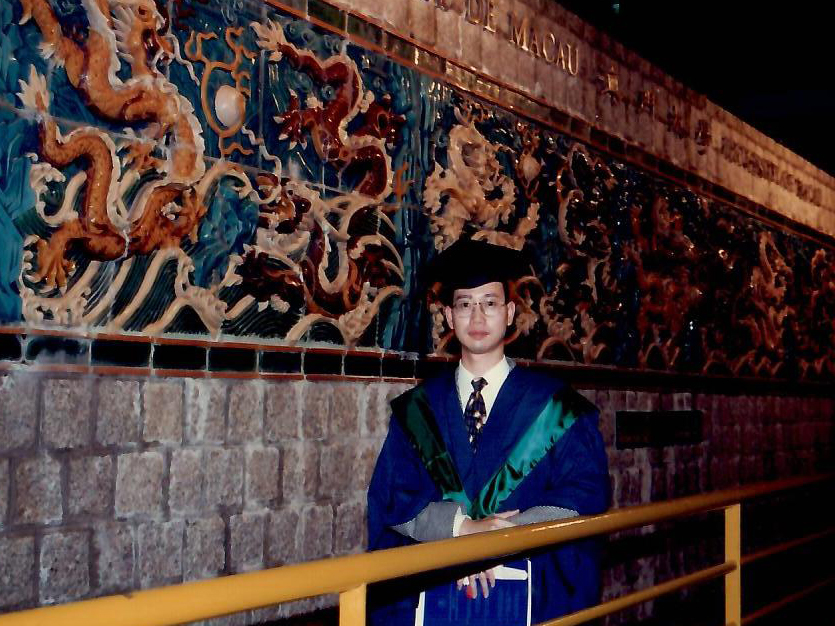
Daniel Fung obtains his master’s degree in public administration from UM in 1997
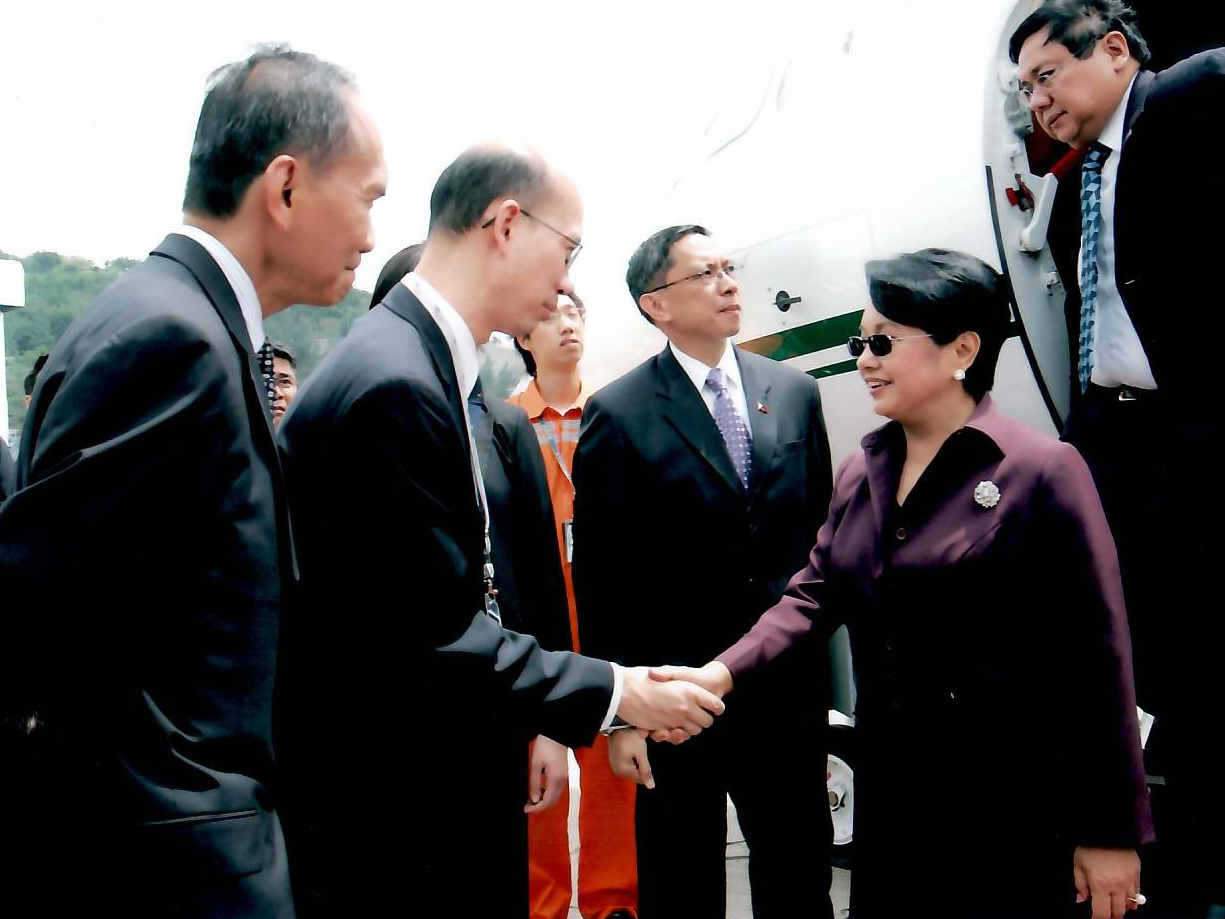
Daniel Fung (2nd from left) greets Gloria Macapagal Arroyo, then president of the Philippines, in Macao in May 2006
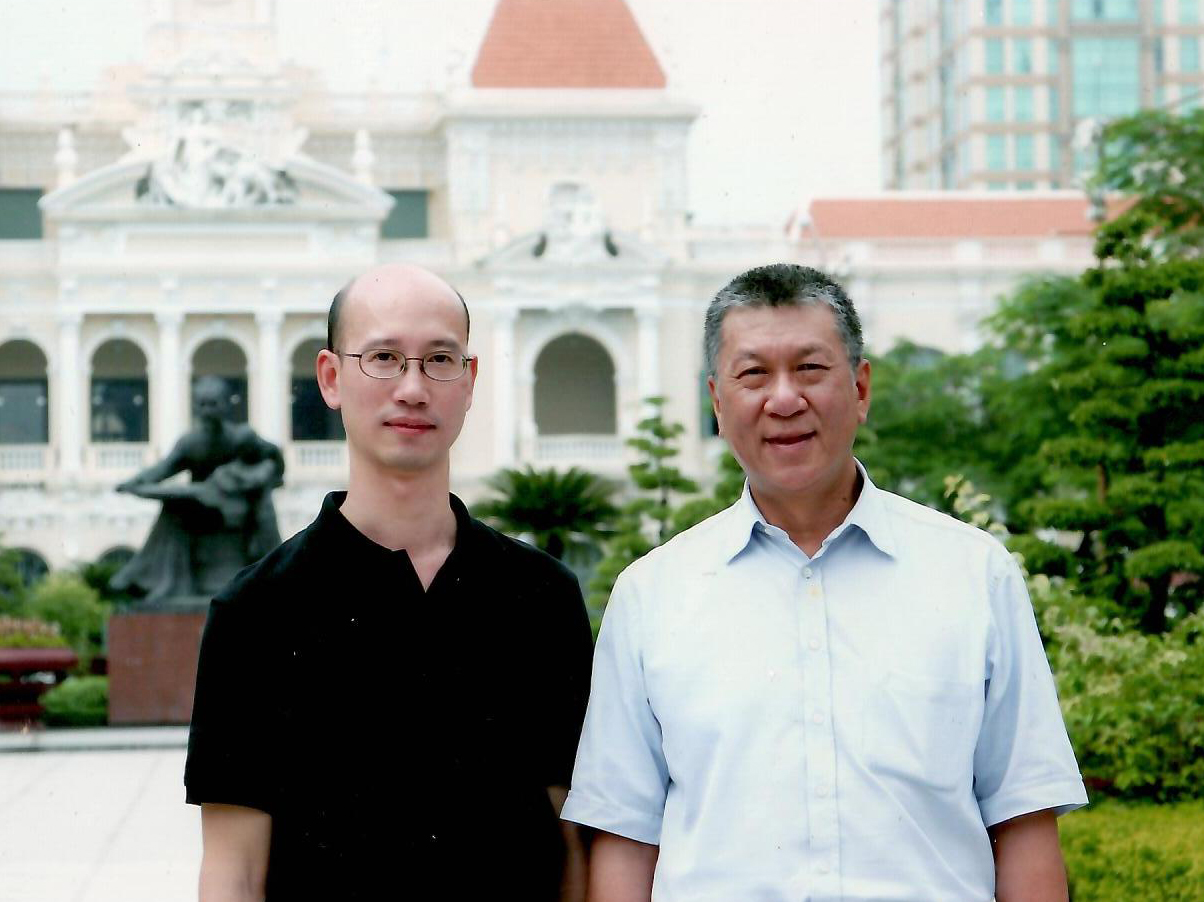
Daniel Fung was involved in planning the official visit of then Chief Executive Edmund Ho Hau Wah (right) to Vietnam in October 2006
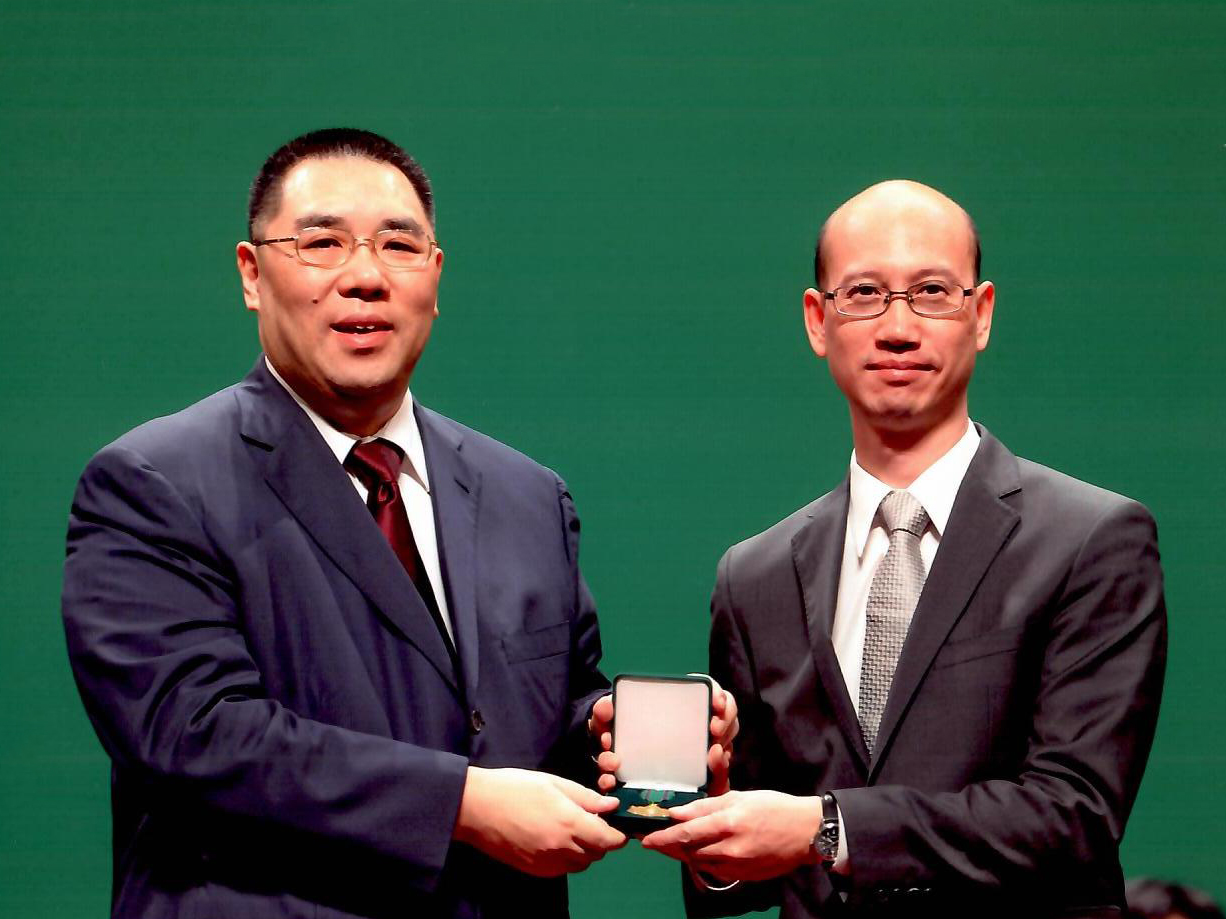
In 2009, Daniel Fung receives a Medal of Dedication from Fernando Chui Sai On (left), then chief executive of the Macao SAR.
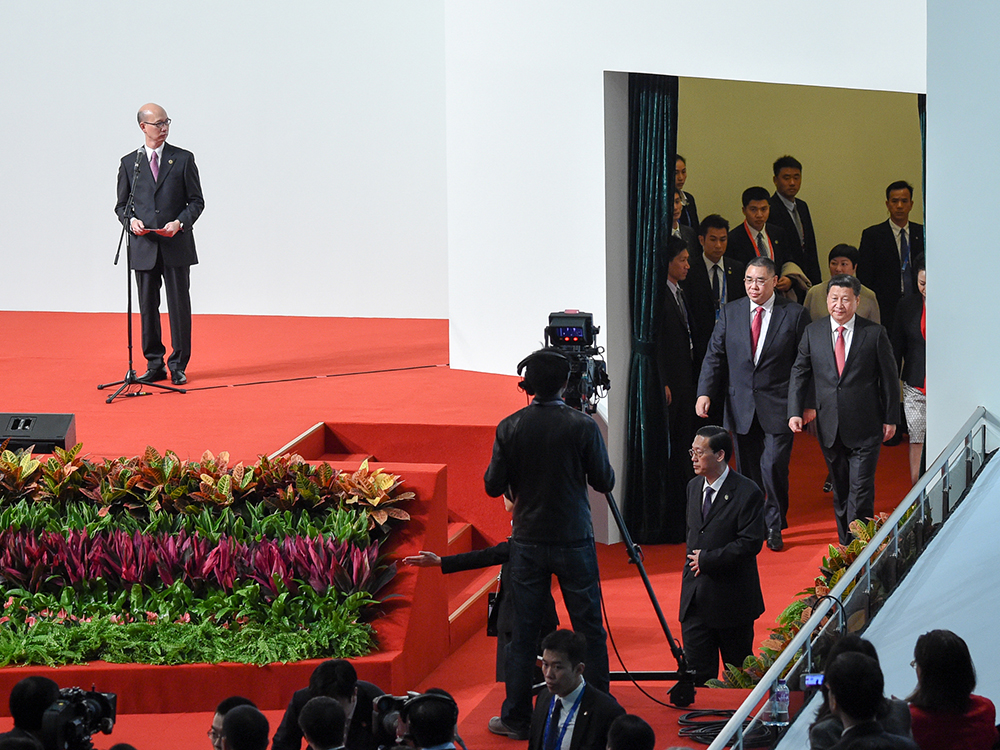
In December 2014, Daniel Fung (left) serves as the emcee at a ceremony marking the 15th anniversary of Macao’s return to China and the inauguration of the SAR’s new leadership.
